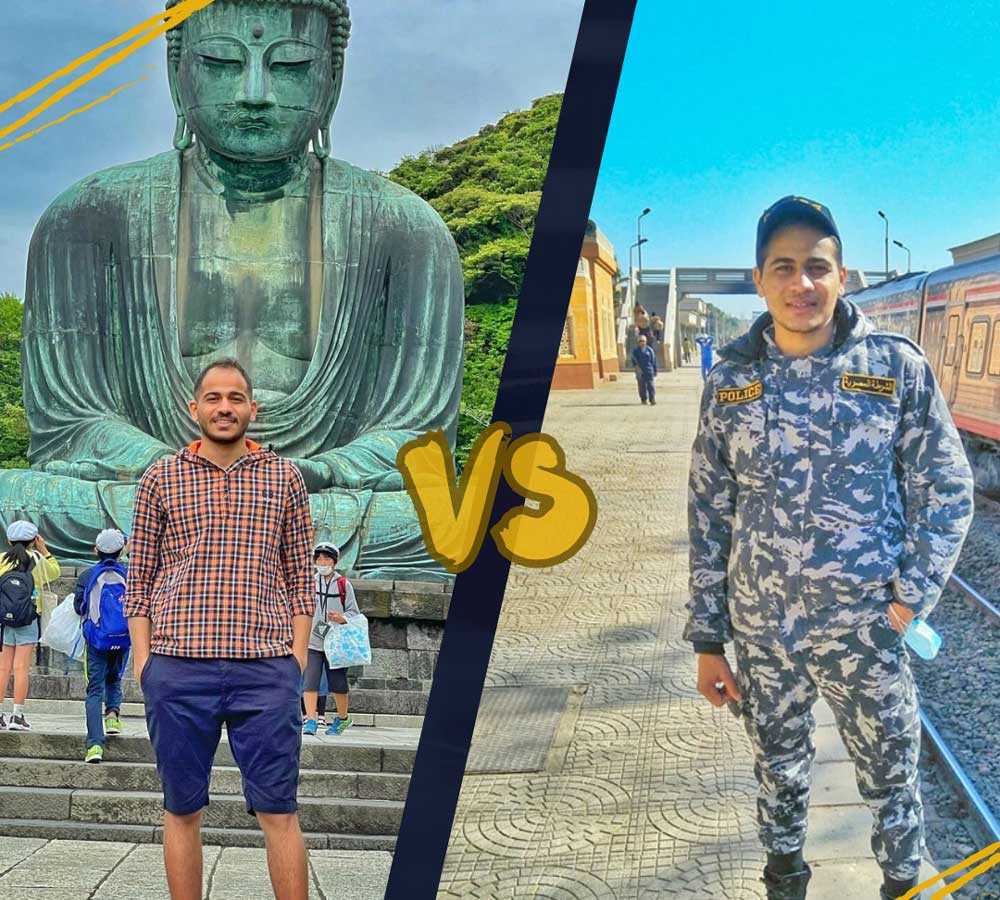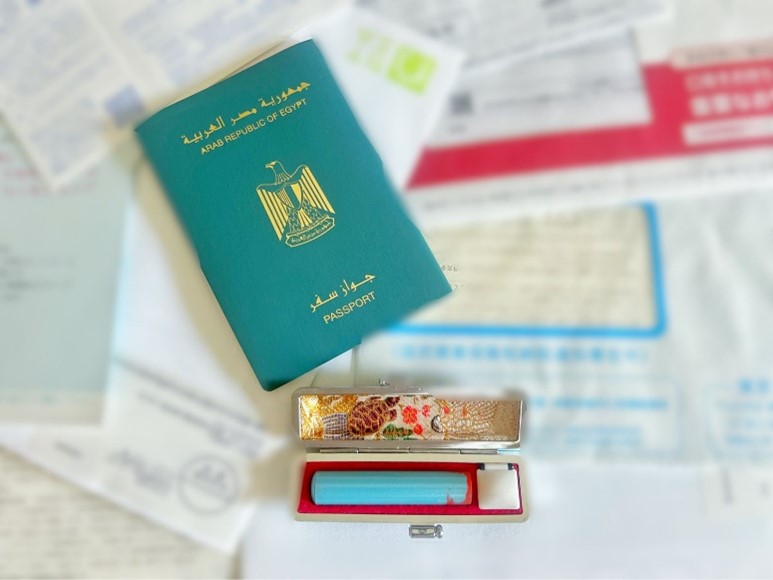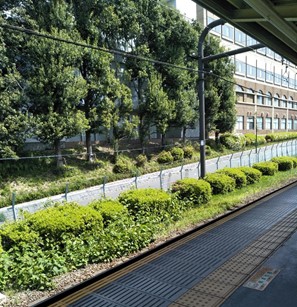
As-salamu alaykum! This is Shaikh from Egypt. I joined Science Tokyo in April, 2023. When I first arrived in Japan, I was overwhelmed. The early mornings, endless paperwork, cultural barriers, and sense of unfamiliarity hit me all at once. But strangely enough, it all felt familiar, too, like I had been through this before. Then it clicked: my first few months in Japan reminded me a lot of my time in military service. Both experiences shared a core set of challenges that tested my discipline, adaptability, and mental resilience.
For any student considering studying or working abroad in Japan, these reflections might give you an insight into how to prepare, what to expect, and how to thrive when life throws you out of your comfort zone.
Waking Up at 4:00 A.M.: The Discipline of Daily Routines
In the military, the day often began before sunrise. At 4 a.m., we were already on our feet, training, cleaning, preparing, and staying alert. When I moved to Japan, I thought those early mornings were behind me. I was wrong.
My first few weeks in Japan were filled with tasks that demanded early starts and tight schedules. I had to wake up early to attend city hall appointments, university orientations, and long Japanese language classes. The administrative procedures alone felt like a full-time job, from registering my residence card, applying for national health insurance, securing a My Number card, opening a bank account, and getting a phone number.
Both in the military and in Japan, I quickly learned that structure is essential. Whether it’s making your bed in the barracks or keeping track of your paperwork in a new country, small routines add up to a greater sense of control when everything else feels uncertain.
Paperwork, Procedures, and Bureaucracy: Navigating New Systems
Military life is full of procedures. There are protocols to follow, chains of command to respect, and forms to fill out for even the simplest tasks. When I arrived in Japan, I encountered a different but equally complex set of systems.
I had to finalize my accommodation, register my address, navigate immigration rules, and ensure that every step was done correctly. For students, especially international ones, this initial administrative burden can be overwhelming. You might find yourself bouncing between municipal offices, convenience stores to print documents, and banks — all in a language you may not understand yet.
Just like in the military, success depends on being organized, patient, and persistent. No one enjoys paperwork, but completing these tasks properly gives you access to essential services and allows you to settle in with confidence.

New People, New Language, New Culture: Adapting on the Fly
In both the military service and in Japan, you’re dropped into a new environment where you need to interact with people from different backgrounds. In the military, you learn quickly how to build camaraderie and work as a team, even if your fellow soldiers come from different cities, regions, or belief systems.
In Japan, I was again the “new person.” The language barrier was real, especially during the intensive Japanese course I had to attend almost every weekday. I was surrounded by students from around the world, all of us trying to learn Japanese while simultaneously adapting to Japanese culture and systems. Every interaction, whether at the supermarket or the station, was a small test of adaptability.
This adjustment phase reminded me of my time in military basic training: you don’t have the luxury of waiting until you’re ready and know everything. You must learn by doing, failing, asking questions, and trying again. This is a process that, though exhausting, is exactly how you grow.
Faith, Food, and Fasting: Finding Balance During Ramadan
One of the most challenging parts of my transition to Japan was experiencing my first Ramadan here. Fasting from dawn to dusk is difficult anywhere, but it’s even more so when you’re still adjusting to a new schedule, climate, and diet. I had to find suitable halal food, learn how to cook for myself, and manage the energy required for a full day of language classes and university preparations, all while fasting.
In the military, I had also faced situations where I had to maintain my religious practices in difficult circumstances. The lesson? With some planning, support, and determination, you can always remain true to your identity, even when the environment is different.

What I Wish I Knew Before Arriving in Japan
Looking back, I realize that I could’ve saved myself some stress if I had known what to expect. So, here’s what I’d like other students to know if they’re preparing for life in Japan:
- Expect the first three months to be chaotic. That’s okay. It doesn’t mean you’re failing; it means you’re growing.
- Write down everything. Keep track of appointments, addresses, and deadlines. Japan runs on precision.
- Seek help and build community. Talk to your senpai (senior students), professors, or local international support centers. You’re not alone.
- Don’t skip language preparation. Even basic Japanese skills will make daily life smoother.
- Take care of your health and well-being. Eat well, sleep when you can, and take breaks when needed.
Final Thoughts: From Surviving to Thriving
Both my time in military service and my time in Japan taught me that resilience is built through doing difficult things, especially things outside your comfort zone. Whether it’s completing morning drills or registering at city hall, learning a new language or fasting during Ramadan, every challenge has taught me something valuable about myself and the world.
If you’re about to start a new chapter, remember that feeling overwhelmed is not a sign of weakness. It’s a sign that you’re adapting and growing into a stronger, more capable version of yourself. Just like my experience in Japan and the military service, this chapter will pass and leave you more confident than before.
